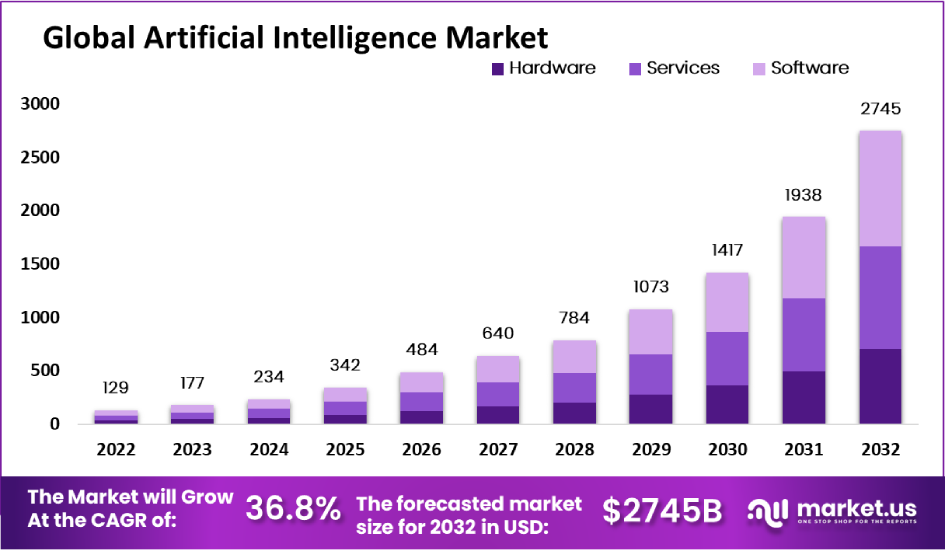In the rapidly evolving world of international trade, staying ahead of market trends and shifts is crucial for businesses seeking to maintain a competitive edge. Artificial Intelligence (AI) has emerged as a transformative tool in this arena, offering profound capabilities in analyzing vast amounts of data to predict trends, understand market dynamics, and inform strategic decisions. This article explores how AI is reshaping market analysis in international trade and the advantages it offers.
Understanding AI in Market Analysis
AI refers to the simulation of human intelligence in machines that are programmed to think like humans and mimic their actions. In market analysis, AI involves the use of algorithms and software to analyze complex data sets at a speed and depth that are unattainable for human analysts.
Key Applications of AI in International Trade
Predictive Analytics
- Trend Forecasting: AI algorithms can process and analyze historical data trends to forecast future market movements. This is particularly useful in international trade, where economic indicators, exchange rates, and consumer trends can affect market conditions.
- Demand Forecasting: AI helps businesses predict future demand for products in different markets, allowing them to adjust their production schedules, inventory levels, and marketing strategies accordingly.

Real-Time Data Analysis
- Market Sentiment Analysis: AI tools analyze news articles, social media, and other digital content to gauge market sentiment. This helps companies understand public perception of market conditions and potential political and economic shifts that could affect trade.
- Supply Chain Optimization: AI can analyze real-time data from various points in the supply chain to identify bottlenecks or inefficiencies, thus optimizing operations for international trade.
Deep Learning and Big Data
- Pattern Recognition: Deep learning, a subset of AI, is adept at recognizing patterns and anomalies in large data sets, from global shipping trends to changes in consumer behavior in different regions.
- Big Data Processing: AI algorithms are particularly well-suited to handle big data, which is prevalent in international trade due to the volume of transactions, regulatory documentation, and cross-border communication.
Advantages of AI in Market Analysis
Enhanced Accuracy and Speed
- AI significantly reduces human error and provides outcomes at a pace that far exceeds traditional methods. This speed and accuracy are crucial in international trade, where opportunities and risks can arise swiftly.
Scalability and Adaptability
- AI systems can scale according to the amount of data and the scope of the market being analyzed, making them perfect for companies operating at various levels of international trade.
- These systems can quickly adapt to new markets and changing trade environments, providing businesses with the agility needed in the global market.
Cost-Effectiveness
- By automating the data analysis process, AI reduces the need for large teams of data analysts, thus saving costs associated with human resources.
- AI improves decision-making efficiency, which can result in better allocation of resources and investment, ultimately saving money and maximizing profits.
Challenges and Considerations
Data Privacy and Security
- Implementing AI in market analysis requires access to sensitive data, which must be handled securely to protect privacy and comply with international data protection regulations.
Ethical and Bias Considerations
- AI systems are only as good as the data they are trained on. Biased data can lead to biased decisions, so it’s crucial to use diverse and representative data sets.
- There are also ethical considerations regarding the replacement of human jobs with machines, which businesses need to manage responsibly.

Conclusion
The role of AI in market analysis is becoming increasingly indispensable in the context of international trade. By leveraging AI, businesses can gain unprecedented insights into market trends, consumer behavior, and supply chain dynamics, which can significantly enhance strategic decision-making. As technology evolves, the integration of AI in market analysis will likely deepen, offering even more sophisticated tools for businesses to navigate the complexities of global markets.


